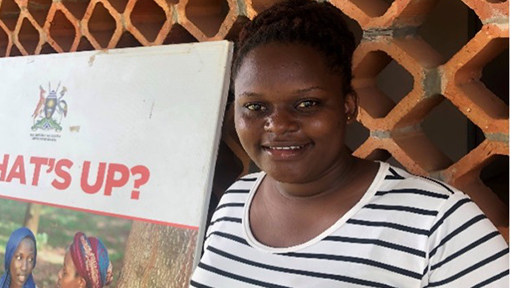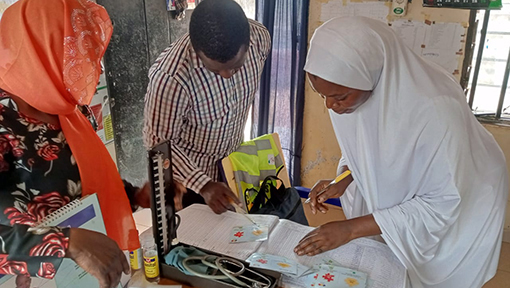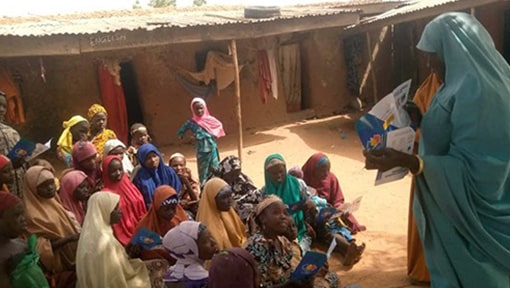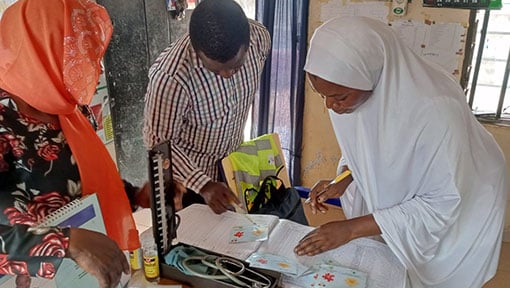TCI Coaching Helps Strengthens Integration of Family Planning Services in Mukono, Uganda

Betty Nakazibwe oversees the family planning clinic at Mukono General Hospital.
Mukono Municipality in Uganda has 11 public health facilities, including Mukono General Hospital – a high-volume facility with various departments and clinics operating on a daily basis. Ninety percent of the women that the facility serves are of reproductive age. The maternity clinic is the busiest of all the clinics with about 10 women delivering babies daily. Other busy departments include antenatal and postnatal services, antiretroviral therapy, outpatient department (OPD), and a youth and adolescent clinic. These clinics and departments have always worked in isolation, serving clients who may be in need of other services but not receiving referrals for them. Health care providers usually concentrated on their daily routines without linking clients in need of other services to those services. As a result, contraceptive uptake was low even with the high volume of women of reproductive age visiting the hospital. Betty Nakazibwe, the in-charge of the FP clinic, shared her experience:
Short-term family planning methods could be provided in the OPD or in other departments; however, this could not be tracked. We used to do a general report without minding about the other FP service points; therefore, it was hard to track the performance of those other FP service points.”
With coaching support from The Challenge Initiative (TCI), Mukono General Hospital adopted the whole-site orientation approach to help better integrate family planning into other health services and reduce missed opportunities. All health facility staff were trained on basic family planning information so they could better understand their clients’ family planning needs. Empowered with family planning integration knowledge and skills, the health facility staff could then easily identify, help, document and refer clients for family planning. Betty explains the significance of this change:
Integration of family planning services in all clinics makes work easy and it has helped me to identify entry points that need support in regard to FP services. Referring these clients to family planning has improved uptake of family planning. There is now good data documentation, capturing of clients referred and FP services provided in various departments. TCI supported us on how to integrate family planning in all departments, specifically how to counsel, provide short-term methods, do proper documentation and referral for services that could not be provided in the other departments. With support from the TCI geography coordinator, we were able to receive tools that support data collection on family planning integration. We were coached on how to compute the data monthly and then report it in the ODK data kit.
In Mukono Hospital, we’re able now to track our FP clients from the other FP service points within different departments in the health facility after acquiring the knowledge from coaching by the geography coordinator and reference to TCI-U. Right now, we follow up on how every FP service point performs based on the tracking system we have in place. We have witnessed increases in clients served, reducing missed opportunity.”
The health care providers at Mukono General Hospital have now coached health care providers at other health facilities on whole-site orientation and family planning integration through TCI’s sisi-kwa-sisi coaching approach. Betty explains the significance of this approach:
Importantly, it started with Mukono General Hospital but right now it has rolled out to other health facilities within the geography, for example, Mukono COU, Mukono Town Muslim, Goma HC III, Kyungu HC II and Nyajja II. I would like to appreciate TCI University for creating a learning environment within our setting that we are now able to improve on data of what we do, change systems and serve clients better.”






